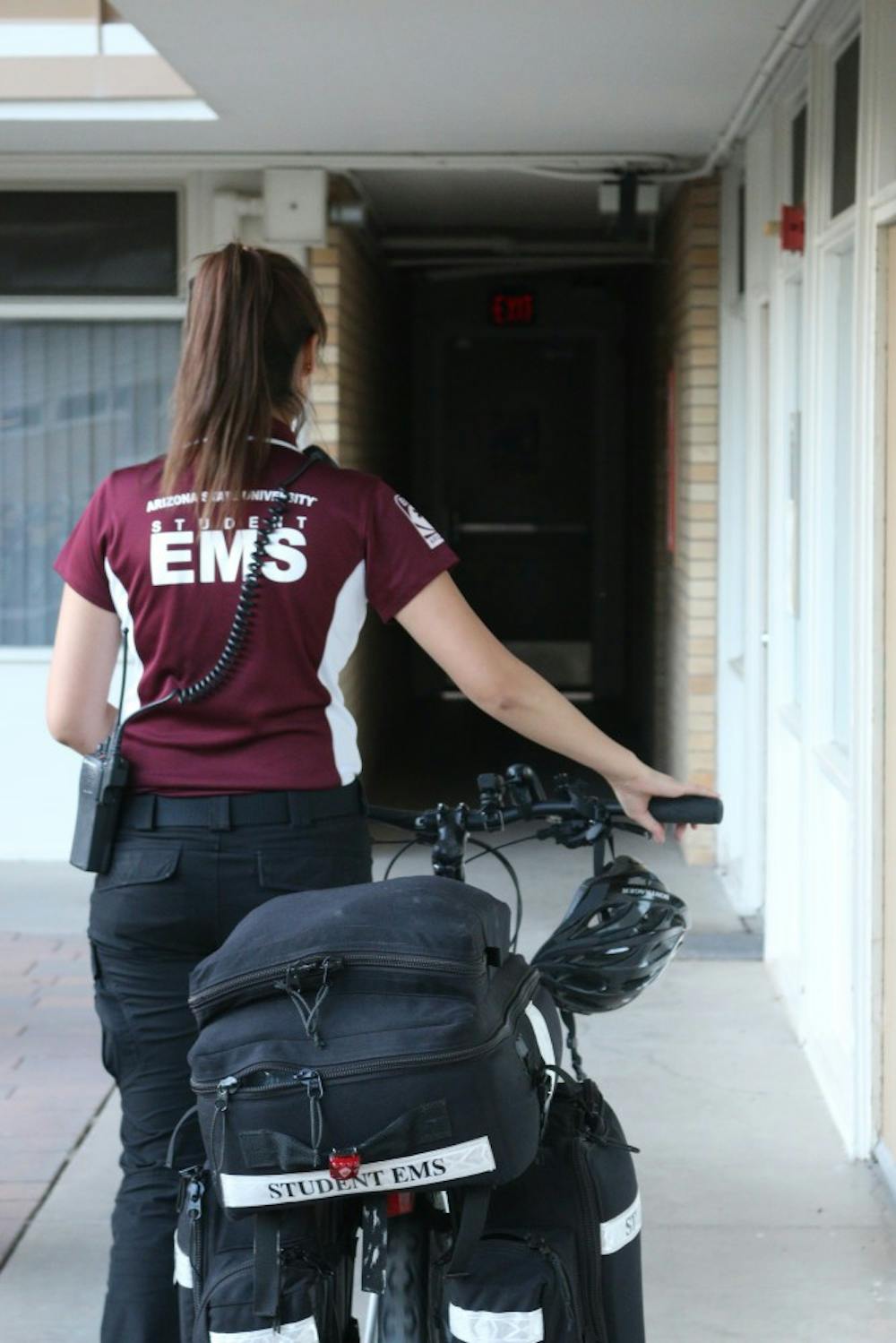An accident occurs. A 911 operator answers the call. Emergency dispatch is sent to the scene. A band of paramedics and emergency medical technicians act as real-life superheroes, rushing to assist the injured. Lives are saved, the area is cleared and the night goes on as if nothing happened.
Jada Wang is one of these silent superheroes, a student by day and literal lifesaver by night. Wang is an EMT Captain for Arizona State University Student Emergency Medical Services, or SEMS. SEMS provides emergency, pre-hospital medical care to students, staff, faculty and visitors on the ASU campus, according to its official Facebook page.
“You don’t know what you’re going to see,” Wang says. “It might just be a patient being overdramatic… or it could be a subdural bleed.”
She’s currently enrolled in 30 credit hours between ASU and Glendale Community College, where she’s getting a degree in biology and a paramedic certification. After her classes, she typically works about 20 hours per week in the SEMS program.
At one point last semester, she split her time between going to school, working as a medical scribe in an emergency room, an EMT with Southwest Ambulance Company and SEMS.
Three years ago, Wang never imagined she’d become an EMT, much less have a leadership position. Her involvement with the program was almost accidental. Wang says during her senior year of high school, she had the choice of taking cosmetology classes or taking an EMT training course.
“(Taking an EMT course) actually made me realize I’m really interested in a medical field,” Wang says. “That’s why I’m doing paramedic school right now and then hopefully medical school one day.”
Now in her sophomore year of college, Wang has accumulated many experiences that have helped shape and grow her into the person she is today. Wang says before she became an EMT, she kept to herself and rarely spoke out. After entering the EMT program, however, she needed to learn to be able to think on her feet and assert herself.
Wang now typically works the “white cloud” shift, meaning she normally doesn’t assist with life-threatening or unusual situations, but she has had her fair share of strange experiences.
Once, Wang was asked to assist with the transfer of a highly schizophrenic patient to Tucson.
Wang says she was nervous because she had to sit in the back of the ambulance with the man the entire way to the hospital. However, Wang says she had a “great conversation” with the patient, and the ambulance made the trip safely.
Today, as an EMT captain, Wang needs to train, command and assist her co-workers in addition to providing the proper immediate care to a patient. She teaches trainees how to recognize certain medical issues, how to provide the proper medical procedures and how to handle stressful situations.
Laura Woodland, a new member of SEMS, had Wang as an instructor during her EMT training.
“She’s a really nice, happy person, but she’s always to the point… She’s very welcoming,” Woodland says.
Although Wang has accomplished many personal and professional goals within the SEMS program, she has also had to jump through more hoops than most EMTs because of her small size, gender and Asian ethnicity.
“I hit all the minorities basically, so it was a little hard to be taken seriously in the beginning,” Wang says.
Wang recalls a time she needed to lift a heavy-set patient, and a firefighter made a comment about her size and appearance.
“One of the firefighters was like ‘Oh you’re such a cutie, c’mon let me help.’ It’s like you didn’t have to make the remark about being a ‘cutie,’” Wang says.
Despite some of her struggles within the program, Wang has helped recruit SEMS members.
Lindsay Cudd, an emergency communications operator for SEMS, says she joined the program because of Wang.
“She definitely has leadership qualities…She’s really good at recruiting for SEMS because that’s her passion,” Cudd says.




